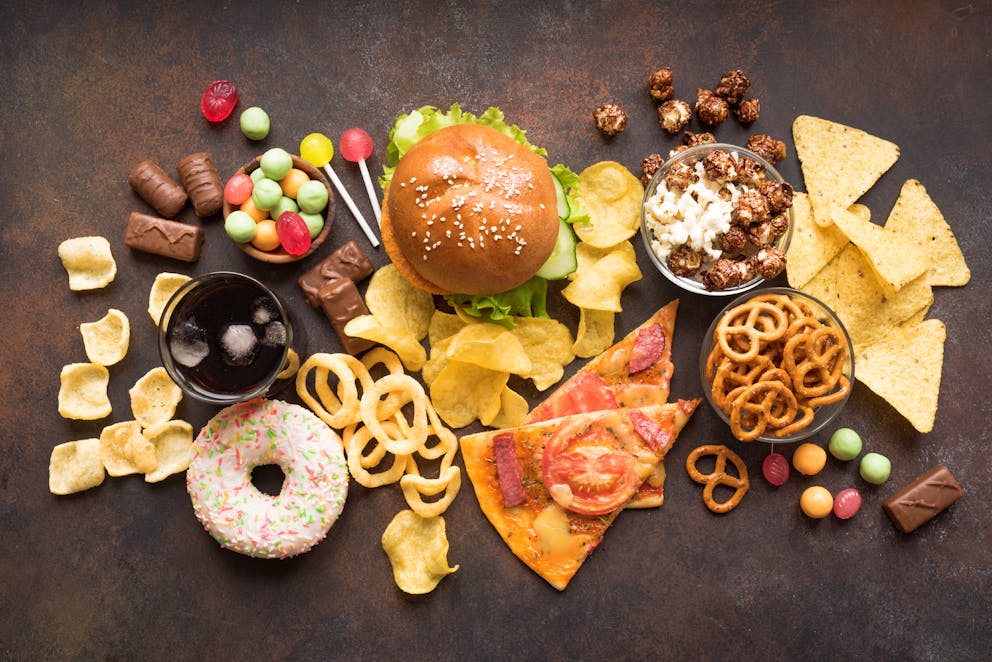Do I Need to Be 100 Percent Organic
Exploring Organic Food Benefits for Health and Nutrition
Unraveling the myriad benefits of organic foods is worth embarking on for anyone keen on enhancing their health and wellness.
Explore the definition of 'organic' in regard to agriculture and differentiate between organically grown crops vs. those produced conventionally. Learn about the rigorous standards that must be met for a product to bear the certified organic label.
Discover some alarming facts about non-organic or conventional foods - explicitly focusing on synthetic pesticides used in traditional farming practices and their potential human health implications.
Understanding Organic Food
Organic food means no synthetic pesticides, GMOs, or sewage sludge-based fertilizers.
Definition of Organic Food
The USDA has an organic certification program. If it's labeled organic, it's safe to consume.
Drinks can be organic as well, so be sure to look for organic labels on drinks as well.
The Difference Between Organic and Non-Organic Foods
Organic food is about natural growth, with no synthetic pesticides or GMOs. Non-organic food, on the other hand, is loaded with chemicals and pesticides.
Choosing organic means avoiding health issues and supporting sustainable farming.

The Perils of Non-Organic Foods
Non-organic foods may be cheap and easy to find, but they come at a cost. These products are grown with the use of synthetic chemicals that can have a detrimental effect on one's health.
Chemicals Lurking in Non-Organic Foods
A wide variety of chemicals are used in non-organic food production. Some of these include glyphosate (a weed killer), atrazine (an herbicide), and chlorpyrifos (an insecticide).
Non-organic foods can also contain genetically altered ingredients designed to resist harsh chemicals or even produce toxins for pest control. These foods are engineered to withstand heavy chemicals or have toxins to fend off pests.
Health Hazards of Non-Organic Foods
Eating these chemically-loaded, genetically modified foods can lead to all sorts of health problems. Over time, exposure to these chemicals may alter your genetic material, potentially resulting in conditions such as cancer.
Research has linked exposure to some agricultural chemicals with neurological disorders like Parkinson's disease and developmental issues in children, including ADHD symptoms and lower IQ scores.
According to JAMA Oncology Journal, chronic exposure to non-organic foods through your diet might increase the risk of certain cancers like non-Hodgkin lymphoma.
Non-organic meat products can also contribute to antibiotic-resistant bacteria. Those animals are routinely fed antibiotics, which can be a big problem for our health.
Natural vs. Synthetic Vitamins: Unveiling the Truth
When it comes to our health, we all want the best, which often leads us to buy organic.
Organic foods offer numerous health benefits due to their natural production methods, which include organic farming practices like using green manure for soil quality enhancement and avoiding synthetic pesticides.
Natural vitamins are derived from whole food sources, such as fruits, vegetables, and herbs, and contain a complex array of nutrients that work synergistically in our bodies.
In contrast, synthetic vitamins are artificially created in a laboratory and often contain isolated, individual nutrients without the full spectrum of supporting compounds found in natural sources.
While synthetic vitamins can be helpful in certain situations, natural vitamins are generally considered more beneficial and easily absorbed by the body due to their holistic nature.
Role of Cruciferous Vegetables in Detoxification
The intricate anatomy of the human being has built-in methods for detoxifying and purifying itself. However, the increased exposure to toxins from non-organic foods can overwhelm these processes. This is where cruciferous vegetables come into play.
List Of Cruciferous Vegetables Beneficial For Detoxification
Cruciferous vegetables are members of the Brassicaceae family and include a wide variety of nutrient-rich options such as:
Kale
Broccoli
Cauliflower
Bok choy
All these cruciferous veggies offer unique health benefits, but they share one common feature - their potential for aiding in detoxification.
How Do They Help In the Body's Natural Detox Process?
The power of crucifers lies in their rich content of glucosinolates, a sulfur-containing compound that support our body's detoxification process.
When we eat these veggies, our bodies convert glucosinolates into active compounds called indoles and isothiocyanates, which help neutralize harmful substances.
This conversion happens through two primary phases: Phase I and Phase II detoxification. During Phase I, enzymes break down toxins into less harmful substances or intermediaries. These intermediaries then move on to Phase II, where they are bound with other molecules (conjugation), making them water-soluble for easy excretion from the body.
Studies suggest that consuming crucifers regularly could enhance both phases, increasing your body's ability to eliminate potentially damaging chemicals effectively.
Note: Cooking Methods Matter.
For maximum health benefits, opt for light steaming or eating crucifers raw. Overcooking can significantly reduce their nutritional value and destroy beneficial enzymes involved in toxin breakdown. Opt for weak steaming or eating them raw for optimal results.
Balancing Your Organic vs Non-Organic Food Fix
Maintaining the right balance between organic and non-organic food is essential for a healthy diet without breaking the bank. Organic is more beneficial, but it can also be pricier. So, how do we keep our diet in check without emptying our wallets?
Calculating Your Toxin Tango
To start, determine how much toxin exposure you get from your diet. Non-organic food can come with a side of pesticides, herbicides, and other chemicals. Keep a food diary for two weeks, noting which items are organic.
Consider researching the typical pesticide levels for those items. The Natural Resources Defense Council (NRDC) is a good resource to start with.
Tips for Veggie Victory
Boosting your cruciferous veggie intake while dodging toxins might seem challenging, but fear not. It's not impossible to increase your cruciferous veggies intake while avoiding toxins, it just takes some extra time and thought.
Go Seasonal: Eating fruits and veggies when they're in season not only tastes better, but it's also easier on your wallet. Look for broccoli and Brussels sprouts at local farmer's markets.
Gardening: If you have the space, try growing your herbs or even small veggies. This way you know and have control over exactly what gets used on the vegetables you eat.
Organic Priorities: If you can't go all-in on organics, focus on 'The Dirty Dozen' list from the Environmental Working Group (EWG). These twelve fruits and veggies have the highest pesticide residues, so go organic whenever possible.
Keeping this balance might take effort, but remember, every little change makes you healthier in the long run.

Interplay Between Intermittent Fasting And Quality Nutrition
The concept of intermittent fasting has gained popularity for weight loss and health benefits. Did you know that intermittent fasting can be a money-saver? Invest in organic foods to improve your health and your bank account.
Benefits Of Combining Intermittent Fasting With An Organic Diet
Organic food, free from pesticides and GMOs, is better for your health and the environment. Intermittent fasting, alternating between eating and fasting, can enhance these benefits:
Better Health Outcomes: Organic food provides high-quality nutrients without harmful chemicals in non-organic foods.
Savings on Healthcare Costs: A diet rich in organic food combined with intermittent fasting can improve health and reduce healthcare expenses.
Economic Efficiency: Intermittent fasting can save you money on meals, allowing you to invest in higher-quality organic products.
This approach is like health insurance against chronic illnesses. Invest in your future self by practicing mindful consumption habits and managing a healthy lifestyle on a budget.
Incorporate organic foods, especially cruciferous vegetables like kale and broccoli, into your diet. Combine it with intermittent fasting for optimal nutrition intake. This promotes better digestion, absorption, and overall bodily functions while reducing exposure to toxins in conventionally grown produce.
Conclusion
Understanding the definition of 'organic' in agriculture and distinguishing between organically grown crops and conventionally produced ones is crucial for informed dietary choices. The stringent standards required for a product to bear the certified organic label ensure adherence to environmentally friendly and sustainable practices.
Recognizing the potential health risks associated with non-organic or conventional foods, particularly regarding synthetic pesticides, underscores the importance of opting for organic alternatives whenever feasible.
By prioritizing organic options and incorporating cruciferous vegetables into your diet, along with intermittent fasting, individuals can promote better health outcomes and reduce exposure to harmful toxins, fostering long-term well-being within budget constraints.
Next blog
A Quick Test for Adrenal Fatigue
Popular
08/21/2024
55K views
02/23/2025
46.4K views
11/18/2024
278K views
03/18/2024
11/21/2022




